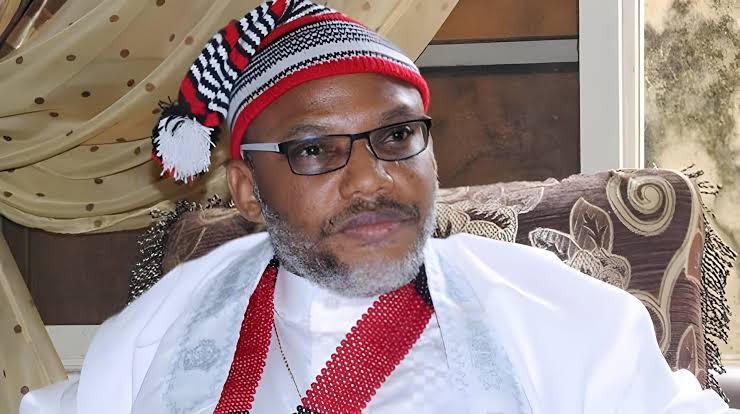
Breaking News: Abuja Court Rejects Request to Move Nnamdi Kanu to National Hospital Abuja
Defence calls for urgent medical needs, DSS insists adequate care is provided, amid mounting health concerns.
Abuja, Nigeria – September 26, 2025
The Federal High Court in Abuja has today denied a request by the defense counsel of Mazi Nnamdi Kanu, leader of the Indigenous People of Biafra (IPOB), for his urgent transfer to the National Hospital, Abuja, for specialized medical care.
Instead, the court directed the Nigerian Medical Association (NMA) to constitute a five-member panel of specialists to independently investigate his health condition, with findings expected to be submitted on or before October 4, 2025.
Kanu has been held at the Department of State Services (DSS) detention facility since his extraordinary rendition from Kenya in June 2021, an act widely condemned by legal experts and human rights advocates as a state crime.
According to his legal team, Kanu suffers from life-threatening illnesses that have been worsened by what they describe as his “abduction, and eight days of torture in Kenya” prior to being forcibly returned to Nigeria.
Justice Omotosho, ruling on the matter, rejected the motion for his immediate transfer to a government hospital, siding instead with a compromise solution, an independent probe by the NMA.
The DSS has argued that Kanu is receiving adequate internal care at its facility despite Kanu insisting that he would not have lumps under his armpit if that was the case.
In its counter affidavit, the agency dismissed the defense’s concerns as exaggerated, maintaining that his current treatment regime is sufficient.
However, Kanu’s legal team presented an independent medical report that sharply contradicted the DSS’s position, warning that his condition requires urgent specialist attention unavailable within DSS custody.
They argued that the refusal to transfer him poses irreparable harm and violates both his right to health and his right to life.
Mazi Nnamdi Kanu, long regarded as the face of Biafra’s self-determination movement, remains one of Nigeria’s most loved political prisoners.
A “Prisoner of Conscience” whose incarceration has drawn sustained international criticism, with rights groups decrying not only his incarceration but also the process of his extraordinary rendition.
Observers say today’s ruling highlights the broader tension between state security narratives and human rights imperatives.
While the court’s order for an independent medical assessment could be seen as a cautious step toward transparency, critics argue it falls short of addressing the core injustice of his prolonged detention which today was scheduled to address.
The judge’s decision to address Nnamdi Kanu’s medical condition rather than rule on the pending no-case submission, filed on the grounds that the prosecution has failed to establish a prima facie case has been criticized as yet another delay tactic by the Nigerian court.
Critics note that the matter has dragged on for nearly five years, despite arguments from legal experts that his 2021 transfer from Kenya to Nigeria violated both Nigerian and international law and therefore undermines the government’s authority to prosecute him.
The five-member medical panel, once constituted by the NMA, will assess Kanu’s condition and determine whether his treatment requires transfer to a national hospital or further medical intervention. Until then, he remains in DSS custody, where anxieties over his wellbeing continue to mount.
For many, the issue extends beyond Mazi Nnamdi Kanu’s medical care. His ordeal represents the broader silencing of dissent and the criminalization of political expression in Nigeria.
As one rights advocate noted, “This goes far beyond Nnamdi Kanu’s health. It is about whether the Nigerian state can use incarceration and neglect as tools against those who dare to speak truth to power.”
As the October 4 deadline approaches, all eyes will be on the independent medical panel’s findings.
Whether this process leads to improved medical access for Kanu or reinforces the state’s claims of adequate care remains to be seen.
What is certain is that his case continues to stir legal, political, and humanitarian debates both within Nigeria and internationally.